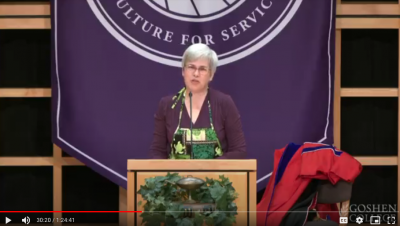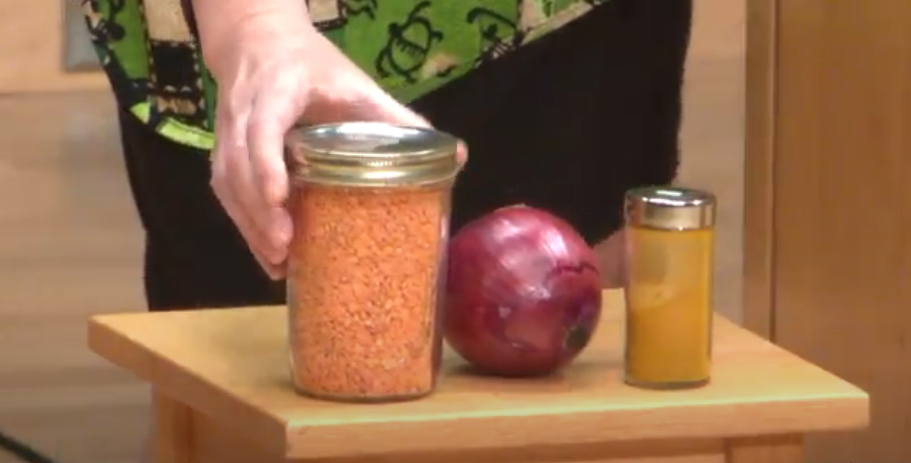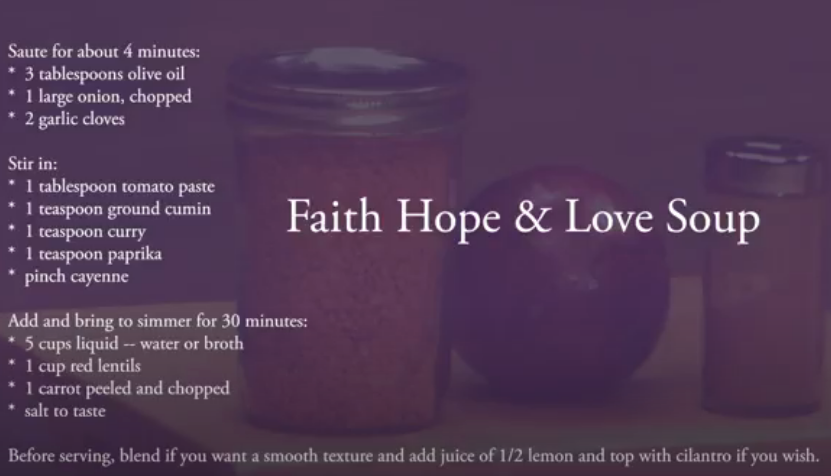President Stoltzfus’ 122nd Commencement speech: A time for loaves and fishes

Dear Goshen College friends and families, faculty, staff, and board of directors,
And most of all, dear graduates,
First, let’s just say: This is not fair. You did not get what you expected and what you deserved in the last months of your senior year.
I hate this coronavirus!
And, Oh, how we miss you! I am so very sad that I cannot see your faces and meet your loved ones. And I’m sure you miss seeing each other today!
This is a commencement like no other. But this is one that we will all remember.
This commencement is happening not only on our campus, but in our homes – your homes – in many states and nations.
I imagine you at home, some of you maybe in your pajamas, and some of you maybe dressed to the nines. I imagine you wearing your mortarboard graduation caps.
I imagine your family and friends, the people who helped make this happen for you, sharing the joy and pride that I feel, and that all of the faculty, coaches and staff at Goshen College feel on your commencement day.
As you may know, I love to cook.
While I always enjoy speaking to you, right now, there is nothing that I would like to do more than to cook for you. To comfort you. To feed you.
This is a time for loaves and fishes.
And so, in this most unusual of commencements, I am going to combine speaking and cooking. Well, not actually cooking. They wouldn’t let me do that. But we need to be nourished right now so that we can serve this beloved and very fragile world.
So I’m going to get out of this regalia, put on my apron and get going.
Because this is a time for loaves and fishes.
Let’s get cooking!

The first thing that we do is go to our pantry, perhaps the very back shelves of our pantry to discover what staples we have to work with.
Aha: here is one:
Faith: A trust in goodness itself.
Even as the world seems to be falling apart, the things that matter most will not fall apart.
We are here, connected. Together.
Faith allows us to know that eventually we will begin to make sense of this. We are going to learn from this. You’ve spent years at Goshen College learning – and learning how to learn. Learning how to stretch yourselves and learn audaciously. How to make sense of things.
Now, it is far too early for us to understand what this all means. We can’t rush this—it will take time. We are in a deep fog of not understanding right now.
You may feel as though the rug has been pulled out from under your feet.
But there is a deeper ground beneath that rug. Faith gives us the ground to stand on, or to lie down on — maybe in the fetal position, wrapped in a blanket. Find that ground of faith.
Our faith may be small, like this jar of spice.
Faith may be Small like a grain of mustard seed.
Faith may be Small like the phone we use to connect to a friend.
Faith that is Small can be enough.
You will get through this. We will get through this.
OK—what other staples might we find:
Hope: A trust that this goodness is alive and going somewhere.
Hope is a tricky word, because it is used in so many ways. Like, “I hope that they don’t find out that I had a kitten in my apartment!”
I’m not talking about that wishful thinking kind of hope. I’m talking about Maya Angelou kind of hope.
The poet Maya Angelou endured traumas in her childhood that caused her to become mute for five years. Not a word. And then she emerged as a one of the most powerful speakers of our time.
I’m talking about the kind of hope that led her to write:
Here on the pulse of this new day
You may have the grace to look up and out
And into your sister’s eyes, and into
Your brother’s face, your country
And say simply
Very simply
With hope
Good morning.
Our hope may be simple. Simple like saying good morning.
Simple like pulling an onion out of your fridge. An onion that you start frying up in oil even before you even know what it is that you are cooking. But you know from its delicious smell that it is going to be good.
And beyond onions, you give me hope. Knowing you and what you are prepared to do gives me trust and confidence that goodness is alive and is going somewhere.
Hope gives us the confidence that there will be another side to this mountain.
And now you have probably guessed what the third staple is:
Love: A trust that this foundational goodness includes me and even defines me. A love that will not forsake me, because I am made in Love’s image.
Love like lentils. Lentils come from a plant that also gives back to the soil that raised it up. Lentils are rooted in this amazing way with the good bacteria in the soil so they end up enriching the soil in which they grew! Imagine that! Lentils produce food, and they also give nutrients back to the soil in which they grew.
What does love look like these days? Oh, so many things. So many ways to be rooted to enrich the places where we find ourselves.
Our love may be a lament:
- Missing touch
- Missing the feeling of being swept up in a crowd, swaying, dancing, singing, cheering!
- Grieving the loss of life, of loved ones.
- Rage at the ways that the injustices of our society have allowed this the losses to fall disproportionately on people who are poor, people without homes, and people of color.
Love is work
The work of caring for the sick, sometimes in frightening conditions
The work of cleaning.
The work of keeping food pantries open.
The work of caring for children. Caring for one another.
Love is putting up with your family’s awkwardness in a small space.
Love is laughter.
Love is noticing small things as sources of strength.
There are lights at the end of this tunnel.
Blue skies over cities once smoggy
The many ways that we are being opened to greater feeling and our connection to humanity.
A chance to radically re-think what we assumed was normal or possible.
You, our graduates, and the lives that you are prepared to lead.
Our losses are real and they are terrible. And yet, we will emerge!
We will come out of this forced hibernation like bears, hungry and blinking in wonder at a world broken apart, for better and for worse, a world waiting to be re-united, re-imagined, re-formed,
You did not choose to graduate into this world in which we now find ourselves. But like people in many historic moments passed, your lives will transcend this. This pandemic will be a part of your story, but your story is so much bigger and better than this chapter.
We will heal from our losses and our disappointments. And we will work together to create a better future.
Your best days are waiting to be discovered.
I will end with a recipe, that is truly one of my favorites. Faith Hope and Love soup.
Sauté for about 4 minutes:
• 3 T Olive Oil
• 1 large onion, chopped
• 2 garlic cloves, minced
Stir in:
• 1 T tomato paste
• 1 t ground cumin
• 1 t curry
• 1 t paprika
• pinch cayenne
Add and bring to a simmer for 30 minutes:
• 5 c liquid — water or broth
• 1 cup red lentils
• 1 carrot, peeled and chopped
• salt to taste
Before serving, blend if you want a smoother texture.
Add juice of 1/2 lemon and top with cilantro if you wish.

Enjoy and be nourished.
When I make this soup, I will always think of you. And if you make this soup, I invite you to think of your fellow classmates, the unforgettable graduating class of 2020.
We will forever remember you: your achievements, your unprecedented experiences, the way we all worked together to keep each other safe, this historic commencement.
Congratulations to each one of you. We are proud of what you achieved and it has been our privilege to teach you, to serve you, to marvel at you, to learn from you, and to enjoy your friendship. Now it is time for you to bring your creative, compassionate and courageous leadership into new settings and stages.
Be well, keep learning and stay connected.




